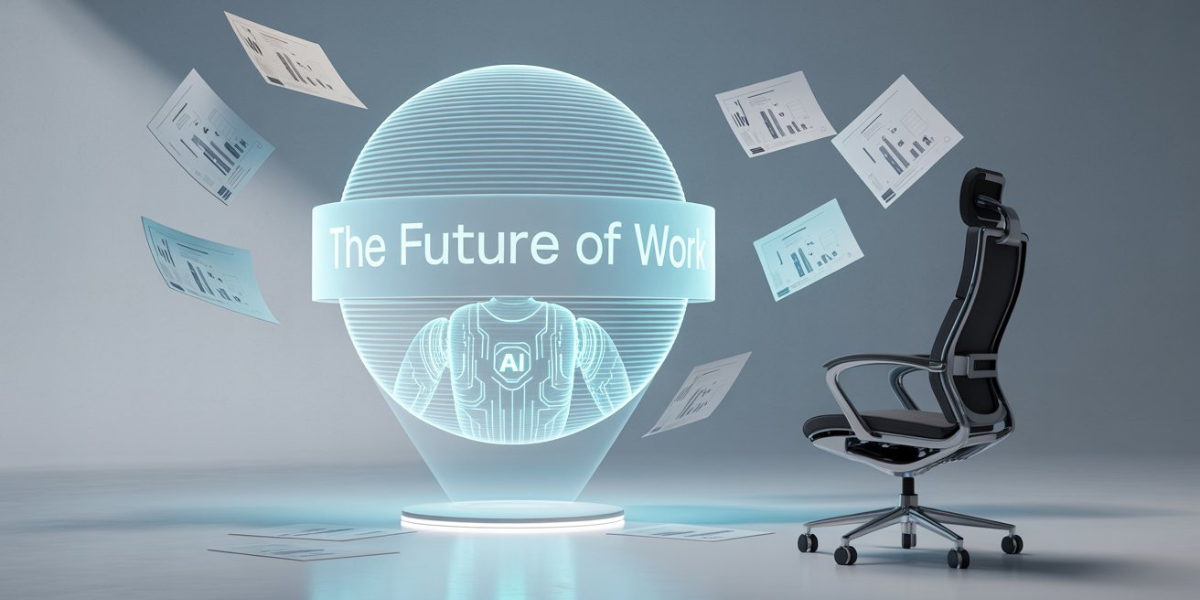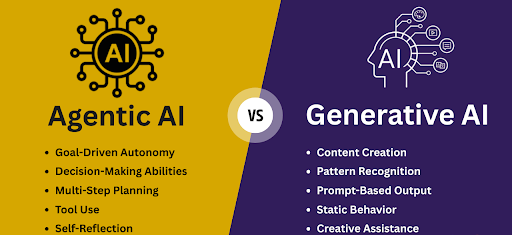Social Dude
The Future of Work: How Agentic AI Agents Will Become Your Digital Colleagues
Introduction
Most organizations stand at an intersection of human ingenuity and artificial intelligence (AI). Before this point, the debates and boardroom discussions have focused on whether humans or AI. However, today a new paradigm has emerged, where AI is no longer an assistive tool but an active participant in professional settings.
This transformation is brought by Agentic AI, a system that presents AI Agents as coworkers. Unlike traditional AI systems that wait for instructions, these autonomous agents think, decide, and act independently, positioning themselves as genuine digital colleagues in daily workflows.
At the same time, it has also raised a few questions about the future of workplace dynamics and organizational structures.
- Will these digital colleagues complement human capabilities or eventually replace them?
- How do we maintain and oversee relevance when AI Agents automate end-to-end processes?
Let's go deeper into this discussion and explore how Agentic AI is transforming workplaces.
What is Agentic AI?
Agentic AI is a system of multiple AI Agents designed to operate independently, make decisions based on context, and take purposeful actions without constant human intervention.
This technology represents a significant evolution from its predecessor, Generative AI, an AI tech everyone has grown familiar with.
How Agentic AI Differs from Generative AI?
The distinction between generative and Agentic AI lies primarily in their operational approach and capabilities. Generative AI excels at creating content based on a set of prompts.
Agentic AI, however, operates with genuine autonomy. These AI-powered digital teammates can initiate tasks, modify their strategies mid-process, and collaborate with humans and other AI systems to achieve complex objectives. They possess what we might call "digital intuition," or the ability to understand.
How Agentic AI is Changing the Workplace?
AI systems have evolved, taking on a broader range of responsibilities. Especially with Agentic AI, these systems are no longer viewed as tools, but as digital (and now even physical) colleagues.
Automation of Routine Tasks
Agentic AI excels at handling repetitive, time-consuming tasks that often drain human productivity. These digital colleagues can manage email filtering, data entry, scheduling coordination, and report generation with remarkable efficiency.
Real-time Adaptability
The role of Agentic AI in team dynamics becomes particularly evident in its adaptive capabilities. Unlike traditional automation systems that follow rigid protocols, these AI Agents can adjust their approach based on real-time feedback, changing priorities, or unexpected challenges.
Improved Customer Service
The benefits of digital colleagues in customer service are becoming increasingly apparent across industries. Agentic AI can handle customer inquiries, escalate issues appropriately, and maintain contextual awareness throughout extended interactions. The following data points support this claim:
- 1/3rd of all people would prefer purchasing with the help of a digital entity (e.g., an AI Agent for retail)
- Nearly 25% have become familiar and comfortable interacting with AI Agents.
- About 34% would like to work with an AI Agent (instead of a person).
Intelligent HR and Recruitment
Human resources departments are experiencing significant transformation through Agentic AI workforce integration. They are unifying resume/CV screening, initial assessments, interview scheduling, and even providing onboarding support through a single automated workflow.
They bring objectivity to hiring processes while freeing HR professionals to focus on strategic relationship-building and company culture development.
Collaboration Between Humans and AI
Perhaps the most exciting development is the emergence of true human-Agentic AI workplace synergy. Rather than replacing human workers, these digital colleagues complement human skills, creating powerful hybrid AI-savvy teams.
Humans bring in creativity, emotional intelligence, and strategic thinking, whereas AI Agents contribute computational power, data analysis capabilities, and tireless execution.
Building and Managing an AI Workforce
Successfully implementing AI Agents in business workflows needs thoughtful planning and strategic execution. The process begins with identifying suitable use cases where Agentic AI can deliver immediate value. As confidence grows and systems mature, you can gradually expand responsibilities to more complex functions.
Prepare your Workforce for AI Agents
The transformation we're discussing encompasses not only technology, but also people and processes. Hence, building a hybrid workforce also requires preparing and familiarizing your existing workforce with Agentic AI systems.
Design awareness/training programs to focus on AI collaboration skills, helping workers understand how to effectively partner with their new digital colleagues. This includes learning to communicate with Agentic AI systems, understanding their capabilities and limitations, and developing workflows that leverage both human and AI strengths.
Hiring AI Expertise
Building a successful AI workforce requires the right human talent to guide, manage, and optimize these digital colleagues. Hence, in addition to preparing your existing workforce, you may have to hire dedicated AI Agent developers. This may also extend to AI engineers, data scientists, AI ethicists, and AI product managers (PMs).
Overcoming Challenges in Adoption
Given the complex nature of Agentic AI systems, adoption challenges are multifaceted, spanning technical, cultural, and strategic dimensions.
Technical Agentic AI Adoption Challenges:
- Complexity in AI model development
- Data quality, privacy, and security
- Legacy system integration complexity
- Orchestrating AI Agents
- Maintaining Agentic AI performance
Earn Employees' Trust
Building trust between human workers and AI Agents as coworkers requires transparency, reliability, and gradual integration. The idea has been propagated by explainable AI systems (XAI systems), where humans also need to see tangible benefits and proper reasoning behind AI outcomes while maintaining their own job security.
Hence, implementing explainable AI principles becomes particularly crucial in this context. When employees can understand why an AI Agent made specific decisions or recommendations, trust naturally follows.
AI Governance and Ethical Considerations
As organizations embrace the impact of Agentic AI on workplace collaboration, establishing robust governance frameworks becomes paramount. These frameworks must address data privacy, algorithmic transparency, and ethical decision-making protocols.
Here is how to build an Agentic AI governance framework:
- Define AI Governance Objectives - Establish clear goals for AI use, risk tolerance levels, and compliance requirements.
- Create Cross-Functional Teams - Form governance committees including IT, HR, legal, ethics, and business leaders.
- Develop AI Ethics Guidelines - Create documented standards for AI decision-making, bias prevention, data privacy, and transparency requirements.
- Implement Monitoring Systems - Establish regular auditing processes, performance tracking mechanisms, and protocols for bias detection.
If this sounds overwhelming, you can also seek professional support for Agentic AI development. These service providers can devise a tailored governance strategy for your workflows.
Ending Note
As we move deeper into this next step, where AI gains autonomy to make decisions, organizations must act now. Those who move early will gain an edge over those who are still considering, as many are still experimenting. Their Agentic AI integration remains limited (even today) to highly deterministic production environments where all variables behave in a predictable manner. Here, AI Agents can easily pick up and learn.
But think of actual operations—a 24/7 IT desk, an invoice processing system, or an inventory tracker. All these environments are hardly ever predictable. There is no guarantee that an Agentic AI system will perform equally well. That's an area where AI is yet to excel.
As larger organizations pursue realistic implementation, others should begin their Agentic AI development journey. Start small, focus on building the right workforce, and take it one step at a time. Agentic AI's buzz is still wild, and the hype is here to stay—for some more years at least.



Comments